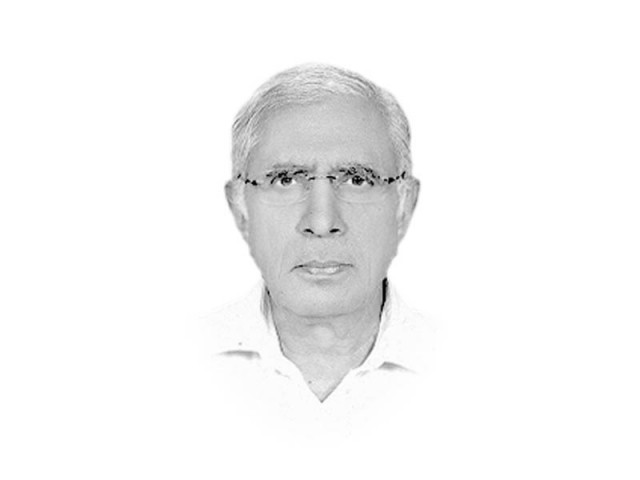Guidelines for covering elections
The media’s ability to use its freedom with responsibility is expected to be put to test during election coverage.

The writer is Executive Editor of The Express Tribune
The Election Commission of Pakistan (ECP) and the interim government, on their part, can ensure responsible cooperation from the media by joining hands with media representatives in framing a well-thought-out and workable code of ethics for election coverage, and then strictly enforcing this code in the APP, the Pakistan Broadcasting Corporation and the Pakistan Television Corporation. At the same time, whenever the need arises, the Pakistan Electronic Media Regulatory Authority could be used, judiciously but firmly.
The ECP is already discussing with various stakeholders a number of proposals in this regard. The Coalition for Ethical Journalism has already submitted its proposals to the ECP. On March 7, representatives of various media organisations, leading editors, journalists, publishers and broadcasters, including representatives of the CPNE, the APNS, the PFUJ and the national press clubs, in their personal capacities, and the South Asia Free Media Association, presented to the ECP a set of guidelines which are expected to be further fine-tuned at a more representative meeting at the ECP headquarters on March 14.
Following are some of the salient points of the proposed guidelines:
1) Publicly owned or funded media and private sector media have a duty to ensure that the public is informed about relevant electoral matters, such as political parties, candidates, campaign issues and voting processes; 2) publicly owned or funded media and private media have a duty to be balanced and impartial in their election reporting and not to discriminate against any political party or candidate; 3) access to information should be ensured during the elections and afterwards; 4) the media have a duty to respect and promote tolerance and avoid all forms of expression that might be interpreted as incitement to violence or hatred on the basis of religion, creed, gender or ethnicity; 5) the authorities should make special efforts to investigate all acts of violence, intimidation or harassment directed against media personnel or the property or premises of a media outlet, and to bring those responsible to justice, particularly where the act was motivated by an intent to interfere with media freedom; 6) there should be no prior censorship of any election programme; 7) the media should be exempted from legal liability for unlawful statements made by candidates or party representatives and broadcast/printed during the course of election campaigns; 8) any candidate/party, which has been defamed or otherwise suffered illegal injury by a broadcast, should be entitled to a correction or, where this would be an insufficient remedy, be granted an opportunity to reply; 9) publicly owned or funded media should grant all political parties/candidates airtime and news space for direct access programmes on a fair and non-discriminatory basis. Other broadcasters may also be required to provide such airtime; 10) during the elections, the media should broadcast special information programmes that provide an opportunity for members of the public to put questions directly to party leaders and candidates, and for candidates to debate each other on policy matters and issues that are of great concern to the electorate; 11) publicly owned or funded media are obliged to broadcast voter education programmes, at least to the extent that this is not already sufficiently covered by other information initiatives. Other media should also introduce such programmes as a matter of public service; 12) if a broadcaster/newspaper publishes the results of an opinion poll or election projection, it should strive to report the results fairly and in a proper context, explaining the scope and limits of such polls that have their own peculiar limitations; 13) the announcement of results should be managed equitably and transparently, ensuring that all media bodies are able to report the results accurately as they officially emerge from polling stations and election control rooms.
Published in The Express Tribune, March 13th, 2013.















COMMENTS
Comments are moderated and generally will be posted if they are on-topic and not abusive.
For more information, please see our Comments FAQ